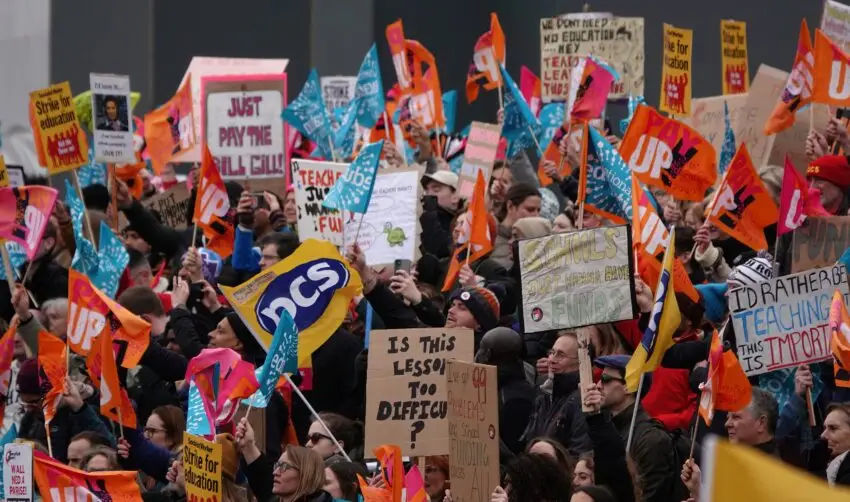Rachel Reeves is considering an inflation-busting pay rise for millions of public workers despite warnings that this move could create an £8 billion fiscal gap.
The proposed wage increases are intended to address recruitment challenges and prevent further industrial action.
Advisory Pay Recommendations
Two pay review bodies have advised a 5.5% wage rise for 460,000 teachers and 1.4 million NHS staff under the ‘agenda for change’ framework.
These recommendations were submitted to the previous government, but action was delayed by Conservative ministers until after the election.
Independent Pay Review Bodies’ Influence
The UK employs eight independent pay review bodies, covering half of all public servants, such as police, prison service, armed forces, and civil servants.
While advisory, their recommendations are often implemented, and sources suggest similar recommendations for other sectors as those proposed for teachers and NHS staff.
Treasury’s Cost Modelling
Former Chancellor Jeremy Hunt’s Treasury conducted private modelling for the cost of implementing these pay recommendations.
The modelling assumed a 6% increase for agenda for change staff and a 5% rise for other public sector workers.
If these increases are approved, the Treasury estimates an additional cost of £8 billion to the exchequer.
Reeves’ Stance on Wage Increases
Reeves hinted at accepting the recommendations during an interview on BBC’s Sunday with Laura Kuenssberg, yet remained cautious about fiscal responsibility.
‘There is a cost to not settling, a cost of further industrial action, and a cost in terms of the challenge we face recruiting,’ she stated.
She criticised the previous Conservative government for delaying tough pay decisions, pointing out former Education Secretary Gillian Keegan for ignoring teacher pay recommendations.
Fiscal Challenges and Potential Solutions
The Resolution Foundation warned about a potential £12 billion fiscal hole facing the new government.
If Labour protects areas like prisons, police, and local government from fresh cuts, the deficit could increase to £33 billion.
Public sector pay rises could worsen this issue, potentially leading Reeves to consider spending cuts or tax increases.
Governments’ Negotiations Amidst Strikes
Ministers are currently negotiating with junior doctors and rail unions to resolve ongoing disputes.
Education Secretary Bridget Phillipson recently informed teachers that immediate pay recommendations could not be addressed despite union pressures.
School leaders demand additional funding to meet these pay recommendations, with a National Governance Association survey indicating that 60% of schools and trusts cannot balance their budgets.
Unions’ Responses to Pay Disputes
Teaching unions have voted for strike action over pay, arguing that real-term wages have declined since 2010.
The National Education Union (NEU) delayed formal strike action pending the September pay offer.
NEU General Secretary Daniel Kebede highlighted the need for substantial pay rises to address recruitment and retention challenges in education.
Ongoing Pay Disputes in Healthcare
Nurses continue to dispute pay with the government after a 5% rise was imposed last year.
Concerns within Labour emphasize that nurses received lower percentage increases compared to consultants and junior doctors, leading to continued strike action.
A government spokesperson noted, ‘We are under no illusions about the scale of the fiscal inheritance we face.’
Rachel Reeves’ consideration of an inflation-busting pay rise for public workers aims to tackle recruitment challenges and industrial disputes.
However, the proposed increases carry significant fiscal implications, potentially leaving the government with difficult decisions on spending cuts or tax increases.


